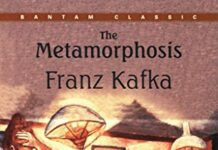
Ebook Info
- Published: 2016
- Number of pages: 386 pages
- Format: EPUB
- File Size: 0.65 MB
- Authors: Franz Kafka
Description
In this new selection and translation, Peter Wortsman mines Franz Kafka’s entire opus of short prose–including works published in the author’s brief lifetime, posthumously published stories, journals, and letters–for narratives that sound the imaginative depths of the great German-Jewish scribe from Prague. It is the first volume in English to consider his deeply strange, resonantly humane letters and journal entries alongside his classic short fiction and lyrical vignettes “Transformed” is a vivid retranslation of one of Kafka’s signature stories, “Die Verwandlung,” commonly rendered in English as “The Metamorphosis.” Composed of short, black comic parables, fables, fairy tales, and reflections, Konundrums also includes classic stories like “In the Penal Colony,” Kafka’s prescient foreshadowing of the nightmare of the Twentieth Century, refreshing the writer’s mythic storytelling powers for a new generation of readers.Contents: • Words are Miserable Miners of Meaning • Letter to Ernst Rowohlt • Reflections • Concerning Parables • Children on the Country Road • The Spinning Top • The Street-Side Window • At Night • Unhappiness • Clothes Make the Man • On the Inability to Write • From Somewhere in the Middle • I Can Also Laugh • The Need to Be Alone • So I Sat at My Stately Desk • A Writer’s Quandary • Give it Up! • Eleven Sons • Paris Outing • The Bridge • The Trees • The Truth About Sancho Pansa • The Silence of the Sirens • Prometheus • Poseidon • The Municipal Coat of Arms • A Message from the Emperor • The Next Village Over • First Sorrow • The Hunger Artist • Josephine, Our Meistersinger, or the Music of Mice • Investigations of a Dog • A Report to an Academy • A Hybrid • Transformed • In the Penal Colony • From The Burrow • Selected Aphorisms • Selected Last Conversation Shreds • In the Caves of the Unconscious: K is for Kafka (An Afterword) • The Back of Words (A Post Script)
User’s Reviews
Reviews from Amazon users which were colected at the time this book was published on the website:
⭐I’m not sure if there’s a term for fans of the works of Franz Kafka (Kafkaites? Kafkers?) but if there is one, I would proudly bear the label. In fact, I have an unusually large collection of books by and about Kafka, so a collection of ‘selected prose’ such as this is generally not new to me, but I welcome the opportunity … or rather, the excuse … to give these works another read.There are many selected gems in this collection, including one of my favorite Kafka stories. I first read “The Hunger Artist” when I was in high school and it had a profound impact on me – both the ideas in the story, and the idea that a story could be conceived about this. Though I’ve read it a few times since high school, I was very glad to read it again.Though I have “Josephine, Our Meistersinger, or the Music of Mice” in another collection (titled slightly differently), I didn’t remember this, but it stands out now as one of my favorites of this collection.”A Hybrid” was another story that I didn’t remember (it may be titled “A Crossbreed” in other collections) but I made the note in this edition: “I love this opening!” Kafka begins the story:
I have a curious creature, half cat, half lamb. A bequest from my father’s estate, it only really developed in my care, before it was much more lamb than cat. But now it’s half and half. Head and claws come from the cat, size and stature from the lamb; both bequeathed the glint and wildness in its eyes, the soft and snug coat of fur, the manner of its movements no less leaping than skulking. In sunshine on the windowsill it curls up and purrs, out in the meadow it runs around like crazy and you can hardly catch it. It flees from cats and tries to assault sheep. The roof gutter is its favorite runway in the moonlight. It can’t meow and is terrified of rats. It can lie in wait for hours beside the chicken stall, but never took advantage of an opportunity to pounce.
Nearly all of Kafka’s short stories are simply amazing and would likely take a reader by surprise for their insight and wit. But one only has to read some of his letters or noted thoughts to see this sharp mind was often making poignant observations. This becomes quite clear in the section of the book with the heading: “Selected Last Conversation Shreds.”If you think you know Franz Kafka, but all you really know is the basic story-line of “Metamorphosis” or perhaps the futility of The Trial, then I would encourage you to check out these short prose pieces. If you don’t know Kafka, then this is a great way to see the creative mind at work and play.This is highly recommended.Looking for a good book? Konundrum: Selected Prose of Franz Kafka is a welcomed collection of some of Kafka’s short works. It’s high time we introduce this classic author to a new generation, and this collection could just do the trick.I received a digital copy of this book from the publisher, through Edelweiss, in exchange for an honest review.
⭐I received a free electronic copy of this collection from Netgalley and Archipelago Press in exchange for an honest review. Thank you, for sharing this work with me.GN I have always enjoyed the flow of language that is unique to Kafka. As with some of his longer works, these excerpts and short stories flow through your mind like a neighborhood creek, little ripples here and there and a first sense of destination. I loved Josephine, Our Meistersinger, or the Music of Mice, though I have no idea where that was flowing. My favorite was Investigations of a Dog. and Selected Aphorisms. All were beautifully written and translated to maintain that Kafka flow. Thank you, Peter Wortsman, for that.
⭐It is one of the curious features of 20th-century literature that an obscure Jewish insurance assessor living in Prague and writing narratives in German of extreme alienation, non-specific guilt and labyrinthine bureaucracy, an author so uncertain of his social worth that he told his friend and literary amanuensis to burn his manuscripts, should become the iconic storyteller of the epoch, the one writer considered indispensable for an understanding and feeling of the age. Any list of the ten most significant stories and novels of the period would have to include at least one, and maybe two works by Franz Kafka in both categories. He died young (1883-1924), so his output was not so great and any enthusiast can read the better part of it.Thus we all feel that we know him pretty well if we have read his three unfinished novels, AMERIKA (1911-1914), THE TRIAL (1914-1915), and THE CASTLE (1922-1924), and a one-volume collection of his stories (1904-1924), all available for many years in the English translations of Willa and Edmund Muir. Those wanting more have gone to the parables, the letters, the diaries. The hunger has been so great that even the insurance reports he wrote have been published, translated and read with the same reverence and interest as his creative works. Courses are taught, lectures read, articles published — nonstop. And still we want more, because Kafka, more than any other writer, speaks to our loneliness, our uncertainty and our inner sense of injustice.Now Peter Wortsman, author of stories and travelogues, and translator from German, notably TELEGRAMS OF THE SOUL by Peter Altenberg, has given us a collection that delivers the unexpected joy of reading Kafka as if for the first time. KONUNDRUM consists for the most part of little pieces — stories, notes, diary entries, letters — that each fill only one to five pages, things one is likely never to have read, interspersed with a half-dozen parables and some of the longer, famous stories in new translations: “The Hunger Artist,” “A Report to an Academy,” “In the Penal Colony.” As you enter the book — bound in graspable thick grey paper, printed in a large font on high-quality stock — you meet Kafka, as it were, in a different suit, coming down the staircase, and he has a few words for you. First, “Words are miserable miners of meaning,” then a letter to a publisher, then a few reflections, then the parabolic “Concerning Parables” and a vignette “Children on the Country Road.” It’s the perfect reacquaintance; before you know it, you have read twenty pages.The juxtaposition of unknown, little-known and well-known works establishes a new context and refreshes your perception. Most of the works in the first two categories are short or very short, while the long works all belong to the last category: famous stories. Some readers, perhaps, will read the book from start to finish, and it will be interesting to know what they think. But my inclination has been to read the short pieces, skip the long and save them for later, especially since I have already read most of them several times. Of course, one can read the book any way one wants; the layout and selection invite you to read it your own way, for pleasure.The chief distinction of Wortsman as a translator is his willingness to use American English of today to render works written in German early in the last century. Other translators, notably the Scottish Muirs, translating from the 1930s through the 1950s, aim for a generalized English appropriate for a generalized European setting, where no word or phrase sticks out as particularly British, or — God forbid! — American. But here is Wortsman translating Kafka’s story/catalogue of his “Eleven Sons”:“My tenth son comes off as a devious character. I cannot wholly deny this character flaw, nor can I absolutely confirm it. What is certain is that whoever sees him approaching from a distance with that air of gravity way beyond his years, striding forward in his ever buttoned-up frock coat, wearing his old but overly brushed black hat, with that immovable expression of his, that somewhat protruding chin, those veiled eyelids, with two fingers sometimes pressed to his mouth — whoever sees him thinks to himself: there goes a consummate phony…”It’s an interesting mix: “comes off…” (American) and “devious character” (general), “air of gravity” (general) and “way beyond his years” (American), “consummate” (general) and “phony” (American). If you are sensitive to these contrasts, it may take you a bit of time to get used to them. But the Americanisms are not necessarily anachronistic; every translation of a work fifty or more years old will contain anachronisms in its vocabulary, and the choice for the translator is whether to try to conceal this fact and create a rendering of the work that seems consistent with its time and place, and even slightly bland, or to accept the inevitable anachronisms and allow the rendering to reflect the time of the translation. The virtue of the second option is that it sparkles and amuses in unexpected ways.This is Wortsman’s method. “How my life has changed, and yet essentially nothing has changed! When I now think back to and recall the times when I still lived in dogdom, took part in everything they did, a dog among dogs, I find upon closer scrutiny…” (the opening to “Investigations of a Dog”). For such a text it is good to take risks (dogdom!), even though not every risk works. The story “Die Verwandlung” is known to the English-speaking world as “The Metamorphosis.” Wortsman wants to perk our perception and retranslates the title, “Transformed.” It’s startling, and may work for some readers, but to change the German noun into a past participle in English strikes me as too rash. Only if a classic title was not literally translated in the first instance, I think, should you make such a radical change in the second. For example, Constance Garnett translated Dostoyevsky’s BESY (1872) as THE POSSESSED. and later translators rendered it literally and legitimately as DEMONS or as THE DEVILS. So this translation keeps you alert and guessing.I have a few quibbles about the format. First, the sources for the short pieces are listed at the back, no doubt to facilitate the easy transition from one piece to the next. But I was curious about the source of each one and had to flip back and forth repeatedly from the text to the notes. Yet the source could easily have been given in italics at the end of each piece without impeding the reading. Second, I am not pleased to see the story “The Burrow,” which I consider one of Kafka’s greatest, abbreviated, though, yes, it is a long story. Otherwise, and without attempting to make a comparison with German texts, I find that the translation reads wonderfully well, especially in “The Hunger Artist,” which summons up images of American circuses rather than European. The volume is bright and fresh, and Kafka steps closer toward you.
⭐Not found.
Keywords
Free Download Konundrum: Selected Prose of Franz Kafka in EPUB format
Konundrum: Selected Prose of Franz Kafka EPUB Free Download
Download Konundrum: Selected Prose of Franz Kafka 2016 EPUB Free
Konundrum: Selected Prose of Franz Kafka 2016 EPUB Free Download
Download Konundrum: Selected Prose of Franz Kafka EPUB
Free Download Ebook Konundrum: Selected Prose of Franz Kafka





